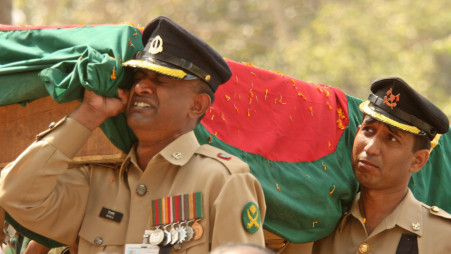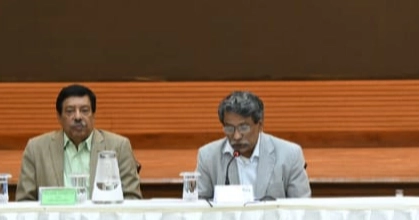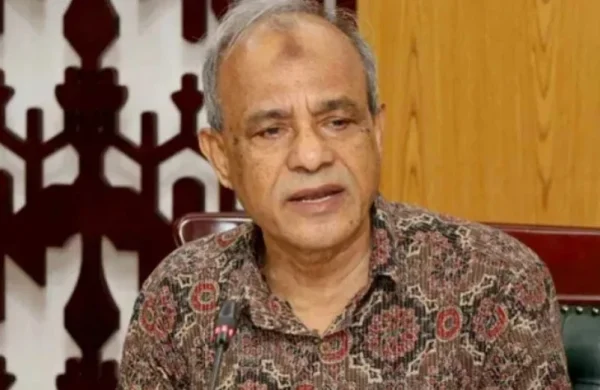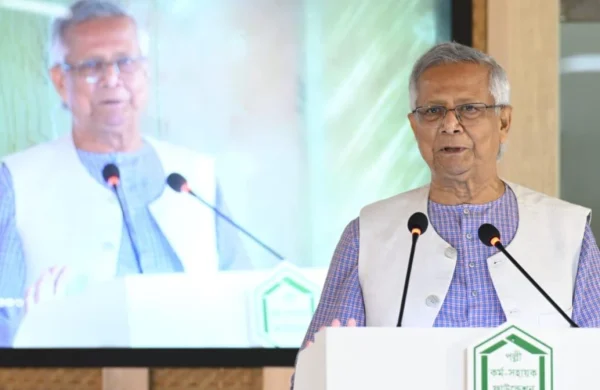Govt forms commission to probe Pilkhana massacre
- Update Time : Monday, December 2, 2024

TDS Desk
The government has established an independent commission to investigate the 2009 Pilkhana massacre, where 74 individuals, including 57 army officers, were killed during the mutiny at the Bangladesh Rifles (BDR) headquarters.
The state informed the High Court bench of Justice Farah Mahbub and Justice Debashish Roy Chowdhury about this development on Monday.
Deputy Attorney General Tanim Khan and Assistant Attorney General Mujahidul Islam Shaheen represented the state in court. They noted that the commission’s details are currently with the Ministry of Law for review.
Expressing dissatisfaction over the lack of clarity, the High Court directed the state to provide comprehensive information about the commission.
The court’s inquiry follows a public interest writ petition filed last month by Supreme Court lawyers Tanveer Ahmed and Biplab Kumar Poddar. The petition was submitted after the lack of response to a legal notice urging the formation of a National Independent Commission to investigate the incident.
On November 5, the High Court issued a ruling questioning why a commission should not be formed to re-investigate the Pilkhana massacre. The court also instructed the Ministry of Home Affairs to address the application for a re-examination of the case within 10 days.
The ruling further questioned why the inaction in forming a National Independent Commission should not be declared illegal and why February 25 should not be declared “Martyr Army Day” to commemorate the victims.
The tragic mutiny occurred on February 25–26, 2009, at the then-Bangladesh Rifles (BDR) headquarters in Pilkhana.
Following the massacre, two cases — one for murder and another under the Explosives Act — were initially filed at Lalbagh police station and later transferred to New Market police station.
After extensive investigations, the CID charged 824 individuals, including 23 civilians, in the murder case. Another 808 individuals were charged under the Explosives Act. Later, a supplementary charge sheet added 26 more accused, bringing the total to 834.
Among the accused were BNP leader and former MP Nasir Uddin Ahmed Pintu and Awami League leader Torab Ali. Pintu, convicted in the case, died during his imprisonment.
Following the mutiny, the government restructured the Bangladesh Rifles and renamed it Border Guard Bangladesh (BGB) to signify a fresh start for the paramilitary force.
















